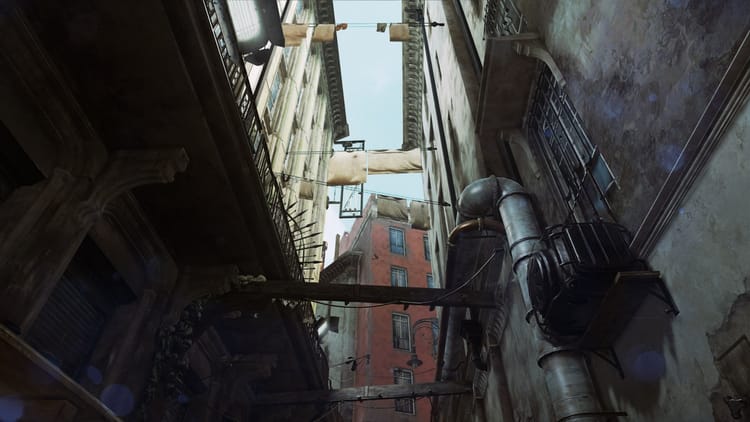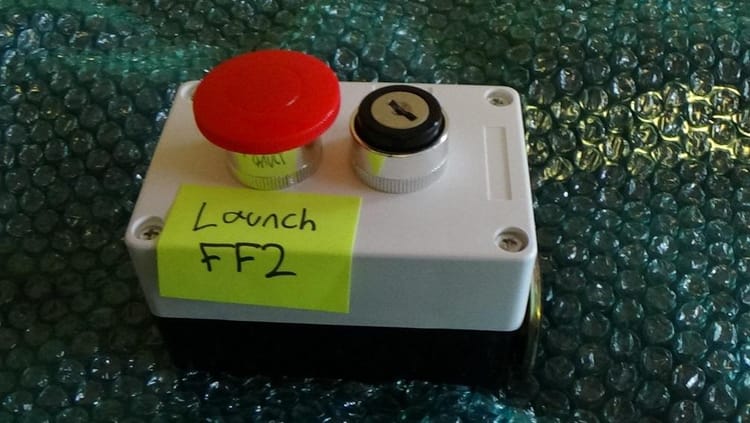The almost-literally indescribable Paradise is coming to mobile

Over the thirty minutes I spoke with Devine Lu Linvega he described Paradise in several different ways.
A kind of creation tool. Not a game…but it can be. It’s a bit like a file system. An interactive text adventure.
The answer is E: all of the above. Paradise is a shell, a blank page, a canvas. It’s a multiplayer fiction tool. It’s unlimited possibility.
But, in literal terms, it’s a text game wherein you become objects and explore large expanses of player-made content, and in which your changes and creations affect the places other players explore. What those objects, expanses, and places actually are is up to their creators.
I created a dachshund. I became the dachshund.
There are three major verbs that empower a Paradise player: create, enter, and become. I created a dachshund. I became the dachshund. Now—as said dog—I am riding a train around all the major nodes of the Paradise universe.
Anything you want to write—free verse, hard-boiled detective story, gentle descriptions of forest scenery—becomes its own page. Anyone can edit and create those pages. Anyone can read them.
And that’s really it. Meaning is only created if you engage with the game. If you stand at arm’s length—or hell, if it just doesn’t work for you—it’s rather like flipping through Gravity’s Rainbow at thirty-page intervals, catching a Slothrop here and a banana there.

Paradise, then, demands you get on its level. There are no puzzles to complete, no characters to barter with, no experience points. There aren’t even usernames, really, only whatever vessel a player inhabits at a given time. I am “dachshund” now, sure, but if I become a bird, the dachshund is gone.
Users are anonymous. Their interactions are not expressly social or necessarily cooperative—collaborative, perhaps. Linvega had to be pushed to even include a chat function.
“There’s no real tool in Paradise to share the world that you create. And I don’t want to make those things,” Linvega says. “I want Paradise to be this massive thing that so many people are playing, but it’s for golem, it’s for blackbird, it’s for Iron, it’s for me. We use this to explore the world we have in our head, more than showing it to other people.”
“We use this to explore the world we have in our head.”
Perversely, perhaps, Linvega is now bringing Paradise to iOS—turning your sharing-and-tagging machine into a vehicle for anonymous, poetic self-expression.
“I don’t want it to be the web version on the mobile. I’m going to try to make it completely different, more touch-based. I’m going to automate almost every [command].”
The current, slim barrier for entry—entering text into a box—will be eliminated. Maybe I should amend that list of verbs: create, enter, become, and touch. By automating commands, Linvega hopes to streamline the creation process.
“There are possibilities in language that are just beginning to be explored,” Linvega says. “I really like the idea of a language that allows you to think faster, more precisely.”

Linvega’s body of work evinces a fascination with texture, with tone, a love for the aesthetics of sound and language. It’s no surprise, then, that he mentions his distaste for most Twine games.
It’s not harsh criticism, or even mean-spirited. It’s more a dissatisfaction with the shell of Twine, the “same kind of layout and interactions” that sours his appreciation—the content done a disservice by the aesthetic. Linvega’s own preference is evident from Paradise itself: aesthetic as inextricable from content. Aesthetic as content.
This is not to peg the game as surface-level pleasure: Linvega tells me, in yet another attempt to describe the elephant, that “This is kind of like my Tron.”
And what is Tron but an aesthetic, a vessel for a genre’s worth of meaning? Tron connotes so much; Tron denotes silly jumpsuits.
Paradise is like the Grid as massive literary endeavor, a self-sustaining fictional galaxy.
It sounds precious and naive, I imagine. But stay long enough in Paradise and you’ll notice those same names running down the sidebar; Iron, golem, blackbird. They’re out there, somewhere, someone, isolated dots among a sea of their own creation.



